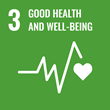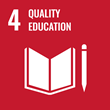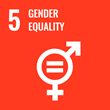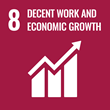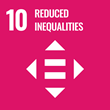
Project information
Language and Lewy body diseases: Sentence comprehension problems and modifying noninvasive brain stimulation treatment
(LANG-LBD)
- Project Identification
- NU23J-04-00005
- Project Period
- 5/2023 - 12/2026
- Investor / Pogramme / Project type
-
Ministry of Health of the CR
- Ministry of Health Research Programme 2020 - 2026
- MU Faculty or unit
- Central European Institute of Technology
Lewy body diseases (LBDs) represents a group of neurodegenerative disorders characterized by the abnormal accumulation of aggregates of α-synuclein protein leading to the formation of Lewy bodies (LB) and Lewy neurites resulting in cell death. LBDs consists of two major clinical entities – Parkinson’s disease (PD) and dementia with LB (DLB). Vast majority of patients with LBDs either already have mild cognitive impairment (MCI) at the time of the diagnosis or will develop it during the course of the disease. Language dysfunctions in LBDs patients with MCI are often unrecognized, they are difficult to treat, but even subtle changes might lead to impairment of social and occupational functioning with profound effect on their quality of lives. Current pharmacological or surgical strategies are effective for tackling the motor issues of LBDs with very limited effects on other symptoms such as language dysfunctions. Therefore, non-pharmacological approaches are gaining more attention. One of these non-pharmacological strategies is the use of noninvasive brain stimulation (NIBS) techniques that are able to modulate the brain functions with the effects on human nervous system plasticity. In our proposed project we aim to first describe specific alterations in the language domain in LBDs patients with MCI as compared to healthy controls (HC) and identify the neural underpinnings of these changes using novel combination of advanced multimodal imaging techniques and various analytical methods. Secondly, we aim to use NIBS as a supervised and individualized home-based therapeutical approach to tackle the language dysfunctions.
Sustainable Development Goals
Masaryk University is committed to the UN Sustainable Development Goals, which aim to improve the conditions and quality of life on our planet by 2030.
Publications
Total number of publications: 3
2025
-
Digital speech biomarkers for assessing cognitive decline across neurodegenerative conditions
COMPUTERS IN BIOLOGY AND MEDICINE, year: 2025, volume: 198, edition: 111251
-
Early Changes in the Locus Coeruleus in Mild Cognitive Impairment with Lewy Bodies
Movement Disorders, year: 2025, volume: 2024, edition: Nov, DOI
-
Sentence comprehension in Lewy body diseases: a functional magnetic resonance imaging study
Brain Communications, year: 2025, volume: 7, edition: 6, DOI


